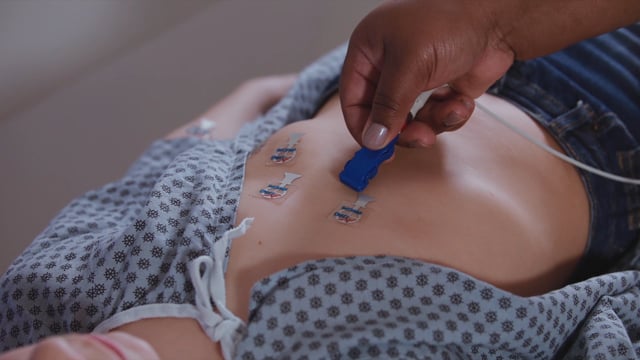Heart Murmurs
What Is a Heart Murmur?
You know the sound of your heartbeat: lub-dub, lub-dub. In some people, the blood makes an extra noise as it flows through the heart. This sound is called a murmur (say: MER-mer).
Doctors hear a heart murmur as a whooshing sound between heartbeats. The whoosh is just an extra noise that the blood makes as it flows through the heart. Doctors usually discover murmurs during regular checkups or when kids see the doctor because they're sick.
Just like kids, murmurs have grades. Grade 1 is the softest-sounding murmur, and Grade 6 is the loudest.
Most murmurs don't mean anything is wrong. But sometimes they are a sign of a problem with the heart.
Who Gets Heart Murmurs?
Many kids have a heart murmur at some time in their lives and most heart murmurs don't mean anything is wrong. Doctors may call these "innocent" or "functional" murmurs. They are caused by blood rushing through the valves in a normal heart and are nothing to worry about.
A normal murmur can get louder when the blood flows faster through the heart, like when kids have a fever or run around. That's because an increase in body temperature or activity makes the heart pump more blood. When your temperature goes down, the murmur may get quieter or even disappear.
Many normal murmurs become harder to hear as children grow older, and most eventually disappear.
What Problems Can Happen?
Even though most murmurs do not mean anything is wrong, sometimes a heart problem can cause a murmur.
If your doctor thinks your heart murmur could be due to a heart problem, you will need to see a pediatric cardiologist (say: pee-dee-AT-rik car-dee-OL-uh-jist). This kind of doctor knows a lot about children's hearts.
What Do Doctors Do?
A pediatric cardiologist will ask questions to see if you've ever been short of breath, had chest pain, felt dizzy, or fainted. The doctor also will listen to your heart with a stethoscope, check your pulse, and listen to your lungs.
Sometimes the doctor might want you to get a chest X-ray to see how the heart looks. You also might get an electrocardiogram (EKG), which measures electrical activity of the heart, or an echocardiogram, which uses sound waves to make video clips of the heart moving. These tests don't hurt.

Getting an EKG
An EKG records the heart's activity through small wires taped to your body.
The doctor will take the information from the tests and exam to see if your murmur is likely to cause a problem for you. If there is a problem, the pediatric cardiologist will know how best to take care of it.
But most of the time, a heart murmur isn't a big problem. And most kids with heart murmurs can run, jump, and play just like everybody else. A heart murmur is simply a sound. It's not always the sign of a heart problem. Usually, it's just your heart whistling while it works.
Reviewed by: Peace C. Madueme, MD
Date Reviewed: May 20, 2022
















